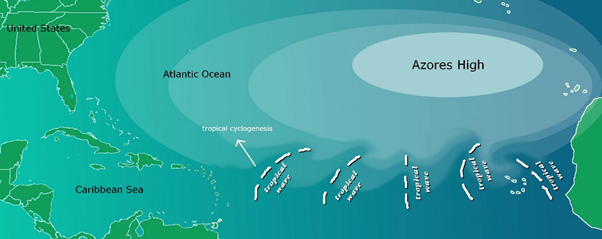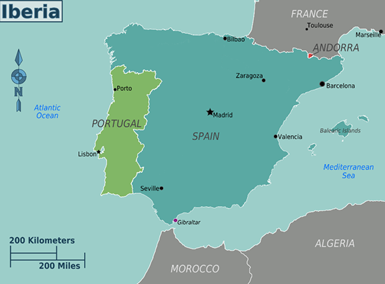Azores High creates dry condition across Mediterranean (Western)
Context
According to a new study, an extremely large ‘Azores High’ (a subtropical weather phenomenon) has resulted in abnormally dry conditions across the western Mediterranean, including the Iberian Peninsula, primarily occupied by Spain and Portugal.
What is Azores High?
|
Subtropical high is one of several regions of semipermanent high atmospheric pressure located over the oceans between 20° and 40° of latitude in both the Northern and Southern hemispheres of the Earth. |
- Azores High is a subtropical high pressure system that extends over the eastern subtropical North Atlantic and western Europe during winter.
- It is associated with anticyclonic winds in the subtropical North Atlantic.
- It is formed by dry air aloft descending the subtropics and coincides with the downward branch of the Hadley Circulation.
- The researchers showed that the Azores High expansion is driven by external climate forces and that the only external forcing that produces this signal in the industrial era is atmospheric greenhouse gas concentrations.

Associated weather
- An annual drying of 5-10 millimeters per year per decade has been recorded in the Iberian Peninsula throughout the second half of the 20th century.
- A further 10-20 per cent drop in winter precipitation is expected by the end of the 21st century.
- These projected changes make agriculture of the Iberian region some of the most vulnerable in Europe. The study projected:
- Olive-growing regions in southern Spain will suffer a 30 per cent decline in production by 2100.
- Cultivation area in grape-growing regions across the Iberian Peninsula will shrink 25-99 percent by 2050 due to severe water deficits that will render land unsuitable for viticulture.
|
About Iberian Peninsula
|


